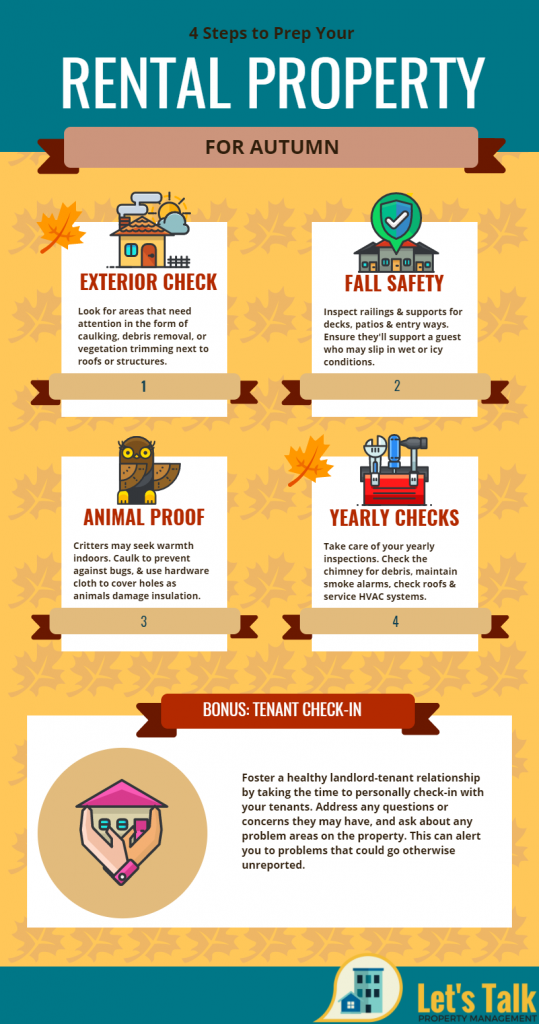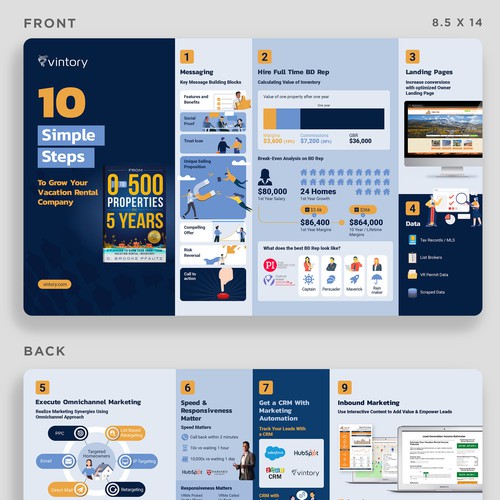Discover the secrets to successful rental management in this comprehensive step-by-step guide for landlords and property managers.

Image courtesy of George Becker via Pexels
Table of Contents
- Introduction to Rental Management
- Starting as a Property Manager
- Understanding Your Responsibilities
- Keeping Financial Records
- Attracting and Screening Tenants
- Legal Awareness for Property Managers
- Property Maintenance and Repairs
- Effective Communication with Tenants
- Utilizing Technology for Management
- Conclusion: Recap of Key Steps in Rental Management
- FAQs
Introduction to Rental Management
Are you curious about what it means to manage a rental property? Or maybe you’re wondering why it’s essential for property owners to know how to do it effectively? Let’s dive into the world of rental management and discover the ins and outs of this crucial responsibility.
What is Rental Management?
Rental management is the process of overseeing properties that are rented out to tenants. It involves taking care of various responsibilities such as finding tenants, collecting rent, maintaining the property, and handling tenant concerns. Essentially, a rental manager ensures that everything related to the property runs smoothly and that both the owner and the tenants are satisfied with their rental experience.
Starting as a Property Manager
So, you’re interested in becoming a property manager? Great choice! Managing rental properties can be a fulfilling and rewarding career. Let’s take a look at how you can start your journey into this exciting field.
Learning the Basics
Before you dive into the world of property management, it’s important to have a solid understanding of the basics. You should familiarize yourself with rental laws, property maintenance, tenant relations, and financial management. These are the building blocks that will help you succeed as a property manager.
Finding Rental Properties
Once you have a good grasp of the fundamentals, it’s time to start looking for properties to manage. You can search online listings, attend property auctions, or network with real estate agents to find suitable rental properties. Keep in mind the location, condition, and market demand when selecting properties to manage.
Understanding Your Responsibilities
As a property manager, it’s crucial to understand the various responsibilities that come with overseeing rental properties. Let’s delve into the key tasks you’ll need to handle.

Image courtesy of www.rentecdirect.com via Google Images
Maintaining the Property
One of the most important responsibilities of a property manager is maintaining the rental property. This includes conducting regular inspections, addressing any issues promptly, and ensuring that the property is in good condition for tenants. Regular maintenance helps prevent larger, more costly problems down the line.
Dealing with Tenants
Another essential aspect of property management is managing tenant relations. This involves clear and effective communication with tenants, addressing their concerns promptly, and ensuring a positive living experience for them. Building a good relationship with tenants can lead to long-term, satisfied renters.
Keeping Financial Records
Managing rental properties involves more than just collecting rent; it also requires keeping track of finances. As a property manager, you must be diligent in recording and monitoring the income and expenses associated with your properties. Let’s dive into the essential aspects of keeping financial records to ensure smooth operations.
Rent Collection
One of the primary responsibilities as a property manager is collecting rent from tenants. It is crucial to establish a consistent system for rent collection to avoid any confusion or delays. Consider setting up online payment options to make it convenient for tenants to pay on time. Sending timely reminders can also help ensure prompt payments.
Budgeting for Expenses
In addition to collecting rent, managing a rental property involves various expenses, such as repairs, maintenance, and utilities. Creating a detailed budget that accounts for these expenses is vital to prevent any financial surprises. Make sure to set aside a portion of the rent for unexpected costs and prioritize necessary repairs to maintain the property’s value.
Attracting and Screening Tenants
When it comes to managing rental properties, finding the right tenants is crucial for a smooth and hassle-free experience. Here, we will discuss how to attract potential tenants and screen them effectively to ensure they are the right fit for your property.

Image courtesy of 99designs.com via Google Images
Creating Attractive Listings
One of the first steps in attracting tenants is to create listings that stand out. Make sure to include high-quality photos of the property, detailed descriptions of the amenities and features, as well as information about the neighborhood and nearby attractions. Highlight what makes your property unique to draw in potential renters.
The Screening Process
Once you have potential tenants interested in your property, it’s essential to screen them thoroughly. This process involves checking their background, rental history, credit score, and employment status. You want to ensure that the tenants have a good track record of paying rent on time and taking care of the property.
Legal Awareness for Property Managers
As a property manager, it is crucial to have a solid understanding of the laws and regulations that pertain to rental properties. By being aware of these legal requirements, you can protect yourself, your tenants, and the property you manage.
Understanding Rental Laws
Local rental laws and regulations can vary greatly depending on where the property is located. It is essential for property managers to familiarize themselves with the specific laws that apply to their area. These laws may cover aspects such as tenant rights, eviction procedures, lease agreements, security deposits, fair housing laws, and health and safety standards.
| Step | Description |
|---|---|
| 1 | Set rental terms and conditions |
| 2 | Create rental listings |
| 3 | Market your rentals |
| 4 | Screen potential tenants |
| 5 | Prepare rental agreements |
| 6 | Collect security deposits and first month’s rent |
| 7 | Perform move-in inspections |
| 8 | Manage ongoing maintenance and repairs |
| 9 | Handle rent collection and tenant communication |
| 10 | Conduct move-out inspections and return security deposits |
By knowing and complying with these laws, property managers can avoid legal issues, disputes with tenants, and potential fines or lawsuits. It is advisable to stay updated on any changes to rental laws to ensure that you are always in compliance.
Consulting with a legal professional specializing in real estate or property management can also provide valuable guidance and assistance in navigating the complex legal landscape of rental properties.
Property Maintenance and Repairs
Managing a rental property involves more than just finding tenants and collecting rent. Keeping the property in good condition is crucial to ensure happy tenants and protect your investment. Let’s dive into the essential aspects of property maintenance and how to handle repairs efficiently.

Image courtesy of www.rasmal.com via Google Images
Routine Maintenance
Regular maintenance is like giving your home a check-up to catch any small issues before they turn into big problems. This includes tasks like changing air filters, checking for leaks, testing smoke alarms, and maintaining the yard. By staying on top of these tasks, you can prevent costly repairs down the road.
Addressing Repair Requests
When a tenant notifies you of an issue that needs to be fixed, it’s essential to respond promptly and prioritize the request based on its severity. Establish clear communication channels for tenants to report maintenance problems and have reliable contractors or handymen you can call on to address the repairs efficiently. Keeping tenants informed about the status of their repair requests helps build trust and maintain a positive landlord-tenant relationship.
Effective Communication with Tenants
Clear and consistent communication with tenants is crucial for successful property management. By setting clear policies and handling tenant concerns professionally, property managers can build positive relationships and ensure a smooth rental experience for all parties involved.
Setting Clear Policies
One of the keys to effective communication with tenants is establishing clear and transparent policies from the start. Clearly outlining the rules and expectations regarding rent payments, maintenance requests, noise levels, and other important aspects of renting helps to avoid misunderstandings and conflicts down the line.
Handling Tenant Concerns
When tenants have concerns or issues that need attention, it’s essential for property managers to address them promptly and professionally. Listening to tenant feedback, responding to maintenance requests in a timely manner, and resolving any disputes or conflicts diplomatically can go a long way in fostering a positive landlord-tenant relationship.
Utilizing Technology for Management
Technology plays a crucial role in making the management of rental properties more efficient and streamlined. By utilizing various tools and software, property managers can simplify their tasks and provide better services to both tenants and property owners.

Image courtesy of www.pinterest.com via Google Images
Management Software
One of the most valuable tools available to property managers is management software. This type of software helps in organizing and managing all aspects of rental properties in one centralized system. From tracking financial records to scheduling maintenance tasks, management software can significantly improve efficiency and productivity. Property managers can easily keep track of lease agreements, rent payment schedules, maintenance requests, and even communicate with tenants through these platforms.
Online Payment Systems
Online payment systems have revolutionized the way rent collection is handled. By providing tenants with the option to pay their rent online, property managers can ensure timely payments and streamline the entire process. These systems offer convenience and flexibility to tenants, allowing them to make payments securely from anywhere at any time. Additionally, online payment systems help in reducing late payments and eliminate the need for manual collection methods, saving time and resources for property managers.
Conclusion: Recap of Key Steps in Rental Management
Managing rental properties can be a rewarding endeavor, but it requires careful attention to detail and adherence to best practices. By following the step-by-step guide outlined in this article, property managers can effectively navigate the complexities of rental management and ensure the success of their investments.
Key Points to Remember:
1. Understanding Your Responsibilities: From maintaining the property to dealing with tenants, property managers must juggle various tasks to keep the rental running smoothly.
2. Keeping Financial Records: Proper financial management, including rent collection and budgeting for expenses, is essential for the financial health of the property.
3. Attracting and Screening Tenants: Creating attractive listings and conducting a thorough screening process helps in finding reliable and responsible tenants.
4. Legal Awareness for Property Managers: Staying abreast of rental laws and regulations is crucial to avoid any legal complications.
5. Property Maintenance and Repairs: Regular maintenance and prompt handling of repair requests are vital to preserving the property’s condition and tenant satisfaction.
6. Effective Communication with Tenants: Clear and consistent communication, coupled with setting clear policies, plays a significant role in maintaining positive landlord-tenant relationships.
7. Utilizing Technology for Management: Embracing technology, such as property management software and online payment systems, can streamline operations and enhance efficiency in managing rental properties.
By incorporating these key steps into your rental management practices, you can set yourself up for success as a property manager and ensure the long-term profitability and sustainability of your investment properties.
FAQs
How often should property maintenance be conducted?
Property maintenance should be conducted regularly to ensure the property remains in good condition. This includes tasks like checking for leaks, repairing broken fixtures, and keeping the property clean. It’s recommended to have a maintenance schedule in place to address both routine upkeep and unexpected issues that may arise.
What are some effective ways to deal with late rent payments?
When dealing with late rent payments, it’s important to communicate clearly with tenants about the expectations and consequences of late payments. Offering flexible payment options or setting up automatic reminders can help tenants stay on track. If late payments become a frequent issue, it may be necessary to enforce late fees or take legal action.
How can technology make rental management easier?
Technology can simplify rental management tasks by automating processes, streamlining communication, and providing access to real-time data. property management software can help track rent payments, maintenance requests, and lease agreements all in one place. Online payment systems make it convenient for tenants to pay rent digitally, reducing the need for manual transactions.
Idaho Poperty Management
